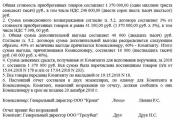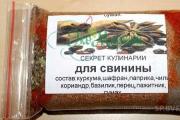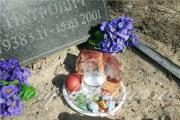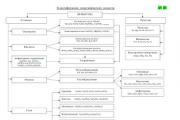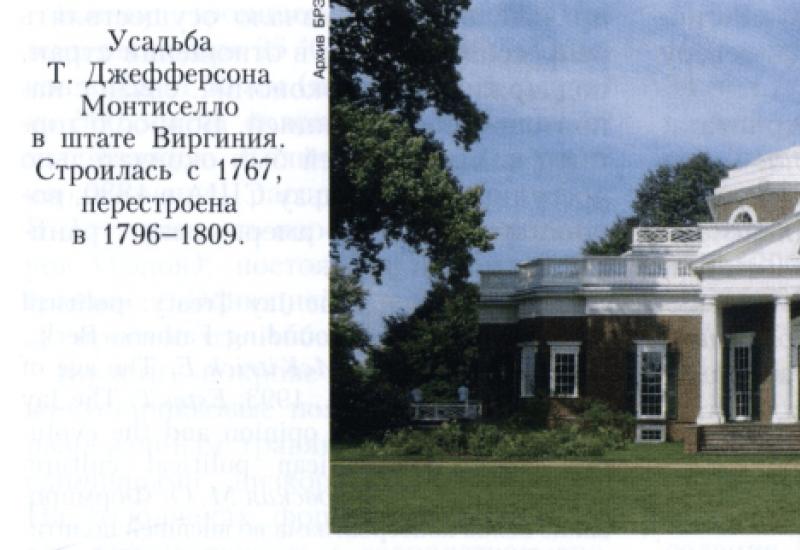Задания на времена группы continuous. Упражнения на времена группы Present – настоящие времена в английском. Настоящее время в английском - упражнения
Типичная ситуация, когда вы изучили базовые времена в английском языке по отдельности, но прошло некоторое время и они перепутались у вас в голове. В этом случае начинать изучение времен сначала не надо! Надо просто систематизировать ваши знания, то есть не просто повторить, а разложить все по полочкам. Такие знания имеют логическую основу и забыть их просто невозможно!
Итак, в этом уроке мы повторим все изученные времена в английском языке Present Simple, Present Continuous, Past Simple и Future Simple, но сделаем это в сравнении.
Времена в английском языке для начинающих (Повторение — Revision)
1. Present Simple VS Present Continuous

Упражнение 1. Как видно из таблицы в этих временах к глаголу-действию добавляются окончания: -S и -ING. Выполните упражнение и вспомните, какие изменения происходят с глаголом при добавлении этих окончаний.

Упражнение 2. Заполните таблицу, используя Present Simple или Present Continuous.
| Present Simple | Present Continuous | ||
| 1. | I / read | I read. | I am reading. |
| 2. | They / do | ||
| 3. | She / learn | ||
| 4. | He / speak | ||
| 5. | It /get | ||
| 6. | We / run | ||
| 7. | He / write | ||
| 8. | She / stay | ||
| 9. | They / carry | ||
| 10. | I / sleep | ||
Упражнение 3. Составьте предложения. Используйте Present Simple или Present Continuous.

Упражнение 4. Закончите предложения. Используйте Present Simple или Present Continuous.
- I …… (watch) TV every day.
- They ………… (watch) cartoons at the moment.
- She ………….. (like) watching news.
- Mark ……… (make noise) now.
- They………… (want) to go to the ballet school.
- Kate ………… (have) dancing lessons in a club.
- Our teacher ………… (make) us do homework.
- Our mother ………… (make) us clean your room every day.
- I ……. (want) to do boxing.
- My friend ………… (do) boxing now.
Упражнение 5.
Вспомните, как строятся вопросы и ответы в Present Simple и Present Continuous.
1. …………………… you usually wear jeans? — Yes, …………………………
2. ……………………. you wearing jeans now?- Yes, …………………………
3. ……………………. he wear the shoes in winter? — Yes, ………………………..
4. ……………………. he wearing a cap? — Yes, …………………………
5. ……………………. your sister wear T-shirts? — No, …………………………
6. ……………………. he doing his homework? — No, …………………………
7. ……………………. they watching TV? — No, …………………………
8…………………….. they watch TV in the morning? — No, …………………………
Упражнение 6.
Найдите ошибки в предложении.

2. Present Simple & Past Simple & Future Simple
Изучите таблицу простых времен в английском языке — Simple Tenses и ответьте на вопросы.

Вопросы:
- Какие вспомогательные глаголы используются в Present Simple, Past Simple и Future Simple?
- Какие формы глаголов используются в Present Simple, Past Simple и Future Simple (+)?
- Какие окончания добавляются к глаголам в Present Simple, Past Simple и Future Simple (+)?
- Сохраняются ли окончания в (-) и (?) предложениях? Какие правила про окончания вы помните?
Упражнение 7.
 * * *
* * *
Глагол BE – является неправильным и имеет в прошедшем времени формы was – был (а), were – были.
Упражнение 8.
Выполните, используя Present Simple, Past Simple и Future Simple.

Упражнение 9. Вспомните конструкцию местонахождения There is/ are и выполните упражнение, употребляя эту конструкцию в разных временах.
1. Our park is nice. …………………………………… a good playground there.
2. ………………………………. an old house near our school a year ago. Now……………………………….. a new playground there.
3. ……………………………….. some strawberries in the fridge. You can take them.
4. ………………………………. some bananas in the bag. Where are they now?
5. ………………………………. a lot of apples in autumn.
6. ………………………………. a lot of apples next autumn.
7. ………………………………. a stadium and three playgrounds near our house. We can play sports every day.
8. ………………………………. three playgrounds and a stadium near our house. We always play sports after school.
9. ………………………………. three apples and a banana in the fridge. You can give them to Sam.
10. ………………………………. a banana and three apples in the fridge. Can we make fruit salad?
Вы помните английские неправильные глаголы и их формы в прошедшем времени? Заполните таблицу.
| D1 (глагол в 1 форме) | D2 (глагол в 2 форме) | D3 (глагол в 3 форме) | |
| 1. | be | ||
| 2. | have | ||
| 3. | do | ||
| 4. | write | ||
| 5. | go | ||
| 6. | get | ||
| 7. | know | ||
| 8. | eat | ||
| 9. | drink | ||
| 10. | change | ||
Упражнение 10 . Перепишите следующий текст в прошедшем времени.
On Monday we have five lessons. The first lesson is Russian. At this lesson we write a dictation and do some exercises. Nick goes to the blackboard. He answers well and gets a «five». Pete does not get a «five» because he does not know his lesson. After the second lesson I go to the canteen. I eat a sandwich and drink a cup of tea. I do not drink milk. After school I do not go home at once. I go to the library and change the book. Then I go home!
Упражнение 11. Заполните таблицу. Используйте Present Simple, Past Simple и Future Simple.
| Present Simple | Past Simple | Future Simple | |
| 1. | I see. | I saw. | I will see. |
| 2. | He is happy. | ||
| 3. | I am ready. | ||
| 4. | It catches me. | ||
| 5. | They feel sad. | ||
| 6. | He falls down. | ||
| 7. | She tries. | ||
| 8. | It eats. | ||
| 9. | They stay. | ||
| 10. | We study. | ||
Упражнение 12. Переведите временные выражения-подсказки. Распределите их по изученным временам и нарисуйте схемы времен.
- sometimes_________________
- yesterday__________________
- soon______________________
- next day___________________
- in 2000____________________
- ago _______________________
- always_____________________
- often______________________
- in a day____________________
- usually________________
- last __________________
- tomorrow____________
Вспомните подсказки на пройденные времена.
Упражнение 13.
Раскройте скобки, поставив глаголы в нужном времени
1. Не often (bring) me flowers. 2. I (meet) Paul yesterday. 3. They (visit) us tomorrow. 4. What (you/do) next morning? 5. Mr Jones (buy) a car last month. 6. Mary (go) to school on foot every day. 7. It (be) hot soon. 8. The baby (not/sleep) well last week. 9. He never (drive) fast. 10. Lessy (live) in Paris in 1989.
Упражнение 14. Раскройте скобки и поставьте глаголы в нужном времени Present Simple, Past Simple, Future Simple.
Если вы не нашли подсказку в предложении , переведите его и подумайте в каком времени (настоящем, прошедшем или будущем) оно лучше звучит. Если сомневаетесь, используйте Present Simple Tense.
1. I (know) his family. 2. She (not/study) at this school. 3. … you (see) them yesterday? 4. He (not/have) a dog. 5. They (write) exercises at the lessons. 6. She (start) school last year. 7. She (not/go) to school. 8. There (be) an interesting film on TV soon. 9. I (not/go) to the country on my holidays next year. 10. Last week we (be) at the library.
Упражнение 15.
- We often_____________(play) basketball.
- I ____________(spend) next holidays very well (хорошо).
- Tomorrow he __________(spend) money and __________(buy) a new CD.
- They __________(go) abroad last month.
- We ___________(go) to football matches every year.
- She ___________(go) shopping yesterday evening.
- He _____________(miss) his parents last month.
- She ____________(make) cakes every day.
- They ___________(ask) a lot of questions next week.
- We ___________ (discuss) texts at the lesson tomorrow.
Упражнение 16. Закончите предложения. Используйте Present Simple, Past Simple и Future Simple.
- He _________ (not meet) his friend every week.
- She _________ (not meet) her parents yesterday.
- They ___________ (fight) last week.
- When _______the party________(begin) tomorrow?
- What _______you ______(get) for your last birthday?
- He often ____________(to forget) his textbook at home.
- The teacher _______(to hear) the noise at the last desk.
- They ___________(not to win) the prize yesterday.
- I _____________(not to feed) my cat every day.
- What ______ you _______(do) tomorrow?
* * *
3. Present Simple & Past Simple & Future Simple & Present Continuous
Упражнение 17.
- (Granny / teach me English / now)
- (Granny / teach me English / when I was seven)
- (They / speak English / at the moment)
- (She / speak English well / soon)
- (He / use the computer / now)
- (He / use the computer / every day)
- (We / learn the rules / at the moment)
- (We / learn new rules / tomorrow)
- (I / do lessons / now)
- (I / do lessons / two days ago)
Упражнение 18. Закончите предложения. Используйте Present Simple, Past Simple, Future Simple & Present Continuous.
- He ……………………… (wash) his car last Saturday.
- He ………………………. (wash) his car at the moment.
- He often………………… (wash) his car.
- We ……………………….. (buy) the chair a month ago.
- They ………………….. (make) friends when they………………. (be) little children.
- She……………………….. (do) a grammar exercise now.
- She is a pupil. She often …………… (do) grammar exercises.
- She……………………………(do) the exercise an hour ago.
- His grandfather …………….. (work) at the circus when he ……………………. (be) young.
- Don’t ask him any questions now. He …………….., (work).
Вы выполнили 17 упражнений на времена в английском языке Present Simple, Past Simple, Future Simple и Present Continuous. Поздравляем! Теперь вы знаете основные времена в английском языке. Переходите к другим разделам. Продолжайте изучать английский язык на уровне (beginer- intermediate) на сайте .
Сейчас вы читаете этот текст. Нет, автор статьи не впадает в маразм, а просто использовал в первом же предложении то, что вам придется переводить на английский во времени Continuous. Наверное, из всех времен это - самое простое. Потому что разгадать его очень легко: глагол в форме Continuous/Progressive (длительный/продолженный) выражает только такое действие, которое протекает в определенный промежуток времени и еще не завершилось.
Например: сейчас вы читаете это предложение (Present Continuous). Вчера, когда вы проснулись, на улице шел снег (в случае со снегом - Past Continuous). А через пару месяцев вы будете собирать чемодан для поездки на море (Future Continuous).
Единственной сложностью, которую смогли найти только ленивые, является использование вспомогательного глагола для образования Continuous. И глагол этот - to be . Если вы были хорошим учеником, то уже давно знаете все его формы:
Am
(для себя, любимого)
Is
(для кого-то другого в единственном числе)
Are
(для кого-то другого во множественном числе)
Was
(в прошедшем времени для кого-то одного)
Were
(в прошедшем времени для нескольких)
Will be
(в будущем времени для всех; можно еще использовать shall для первого лица)
Ну и еще одна особенность - это инговые окончания (-ing ). Так называемая "инговая" форма - и есть Причастие I .
1. Present Continuous (Настоящее продолженое время)
Употребляется для обозначения действия, которое совершается прямо сейчас (в момент речи) или в настоящий период времени:
«Падают, падают, падают, падают листья»
.
Маркеры:
now, still, at present, at the moment, while, meanwhile.
Утвердительная форма образуется с помощью глагола to be
+ основной глагол с окончанием -ing
:
I am reading. He is reading. You are reading.
Отрицательная форма: to be
+ not
+ глагол с -ing
.
They are not reading.
Вопросительная форма:
Are they reading?
2. Past Continuous
(Прошедшее продолженное время)
Употребляется для обозначения действия, которое совершалось в определенный момент в прошлом:
«Шумел камыш, деревья гнулись».
Маркеры:
still, while, during, for 3 hours/days/weeks, all day long yesterday, from … till …
Утвердительная форма: was/were
+ глагол с -ing
.
I was eating all day long.
Отрицательная форма: was/were
+ not
+ глагол с -ing
.
They were not playing.
Вопросительная форма: Was she playing?
3. Future Continuous
(Будущее продолженное время)
Обозначает действие, которое будет совершаться в определенный промежуток времени или момент в будущем: «Я буду долго гнать велосипед».
Маркеры:
still, from … to …, meanwhile, for 3 hours/days/years, during.
Утвердительная форма: will/shall
+ be
+ глагол с -ing
.
They will be laughing.
Отрицательная форма: will/shall
+ not
+ be
+ глагол с -ing.
I will not be crying.
Вопросительная форма: Will it be raining?
Есть, конечно, еще некоторые нюансы использования Present Continuous, но по большому счету по мелочи можно набрать информации еще на пару-тройку томиков по грамматике. Для начала достаточно того, что описано в этой статье. Для закрепления материала настоятельно рекомендуем начать шлифовать полученные знания, прослушав урок о длящихся временах в музыкально-развлекательно-увлекательной подаче. Понравится самым искушенным меломанам и англоманам!
The Present Continuous (Progressive) Tense.
Употребление
Настоящее продолженное время (Present Continuous) обозначает:
1. действие, происходящее в настоящий момент; He is watching TV now.
2. действие, представляющее собой непрерывный процесс; The Earth is moving
3. будущее действие, если оно запланировано. They are spending next winter in Spain.
Но: некоторые глаголы не употребляются в Continuous. Это глаголы, обозначающие чувственное восприятие (to see, to hear ), умственную деятельность (to know, to believe, to remember, to understand ); желания , чувства (to want, to wish, to like, to love, to dislike, to hate ).
Образование
Настоящее продолженное время (Present Continuous ) образуется при помощи глагола to be в Present Indefinite и -ing формы смыслового глагола.
|
Утвердительная форма |
Отрицательная форма |
Вопросительная форма |
||
|
Is he (she, it) working? |
||||
|
are not working |
Are we (you, they) working? |
|||
I am = I"m He is = He"s We are = We"re is not = isn"t are not = aren"t
Упражнения
Упражнение 1. Поставьте правильную форму глагола to be в предложениях, чтобы употребить Present , Past , Future Continuous :
1. I ... taking five courses this semester. 2. Bill ... trying to improve his English. 3. Sue ... writing another book this year. 4. John and Mary ... talking on the phone. 5. I need an umbrella because it ... raining. 6. We ... walking down the street when it began to rain. 7. It was beautiful yesterday when we went out for a walk, it ... not raining, the sun ... shining. 8. I couldn"t get you on the phone last night, who ... you talking to so long? 9. What ... you doing at 6 tomorrow? 10. We ... playing chess in half an hour. 11. She ... listening to her favourite music at 8 o"clock tomorrow. 12. What ... you ... doing when I come?
Упражнение 2. Дайте краткие ответы на вопросы в Present , Past , Future Continuous :
Образец : Are they writing the test in English now? –Yes, they are. – No, they are not.
1. Is the secretary typing our papers? 2. Are you helping your mother to cook the dinner? 3. Am I reading your thoughts? 4. Is he waiting for his girlfriend? 5. Were you wearing this dress at yesterday"s party? 6. Was father reading newspapers at dinner again? 7. Was I talking in sleep? 8. Were they quarrelling when you came in? 9. Was the bus going the wrong way? 10. Shall I be carrying my heavy bags myself? 11. Will they be discussing this question at the meeting? 12. Will you be seeing her tomorrow?
Упражнение 3. Раскройте скобки и употребите глаголы в Present Continuous :
1. I (meet) her at the station at ten. 2. He (give) a lecture at twelve. 3. I (have) lunch with my friend tomorrow. 4. The committee (Meet) next Tuesday. 5. How you (get) to the party tomorrow? I (go) by car. Who (drive)? 6. We’ve got a new flat and (move) very soon. 7. You (do) anything tonight? Yes, I (go) to my English class. 8. I (go) to the dentist tomorrow. 9. He (have) his photograph taken tomorrow. 10. Air hostess: We (take off) in a minute. Please fasten your seat-belts.
Упражнение 4. Дайте краткие и полные ответы.
Образец : Is she playing computer games? Yes, she is. No, she isn’t.
Yes, she is playing computer games now.
1. Are they having a rest? 2. Is your friend dressing? 3. Are they buying a book? 4. Are you waiting for your parents? 5. Is Mary working in the garden? 6. Are the children playing in the garden? 7. Is she writing a composition? 8. Is Pete swimming in the pool now?
Упражнение 5. Поставьте следующие предложения в отрицательную форму, задайте общий вопрос и другие виды вопросов, где возможно.
Образец : Tom is reading a book. Tom is not reading a book.
Is Tom reading a book or a magazine? What is Tom reading?
1. Mary is writing a letter to her mother now. 2. They are playing chess in the living-room. 3. Ron is trying to open the window. 4. We are translating the text now. 5. My sister is cooking breakfast. 6. My father is watching a football match the whole evening. 7. Ann is playing the violin and we are listening to the beautiful music. 8. The younger boys are singing in the boys’ choir.
Упражнение 6. Раскройте скобки, поставьте глаголы в Present Continuous . Переведите предложения на русский язык:
1. Mr Jones (to clean) his yard. 2. Nansy (to paint) her kitchen. 3. Timothy (to feed) his dog. 4.Our neighbours (to wash) their car. 5. I (to wash) my hair. 6. What she (to do) now? She (to study) geography. 7. The children (to brush) their boots. 8. What he (to do) at the moment? – He (to fix) his bicycle. 9.They (to have) a big dinner together. 10. John and his friend (to work) in the library. 11. A young man (to stand) at the window. He (to smoke) a cigarette. 12. The dog (to lie) on the rug near the door. 13. Who (to lie) on the sofa? – The cat and her kittens (to sleep) there. 14. What they (to talk) about? 15. Where is John? – He (to play) computer games.
Упражнение 7. Поставьте вопросы к подчеркнутым словам :
1. Somebody is waiting for you in the hall now. 2. We are going to the Crimea in summer. 3. They are having their daughter"s birthday party on Saturday. 4. We are going to sing cheerfully . 5. The weather is going to change for the worse. 6. I am looking at the clock . 7. He is looking for her gloves . 8. She is looking after her grandmother . 9. We are talking about the new play . 10. We are talking to our neighbours .
Упражнение 8. Раскройте скобки и употребите глаголы в Present Continuous , объясните употребление.
1. Come to see me. I (to have a rest) and (to wait) for you now. 2. It’s nine o’clock now. We (tolisten) to the latest news on TV. 3. Where is the grandfather? He (to work) in the garden now. 4. Look at the little girl. She (to play) with a nice kitten. 5. Are you (to watch) a TV now? No, I (to read) an interesting book. 6. Don’t touch the dog. He (to eat) now and he can bite you. 7. Their parents (to walk) in the garden now. 8. Why you (to wear) this coat today? It is very warm. 9. My father (not to work) this month, he is on holiday. 10. Listen! What language (to speak) the people? 11. We are at the party. – Hello, Mike. You (to enjoy) the party? 12. My sister wants to lose weight. She (not to eat) anything today.
Упражнение 9. Раскройте скобки и употребите глаголы в Present Continuous . Прочитайте получившийся рассказ и перескажите его :
We are having a walk in the park now. It is very nice and interesting here. It (not to rain) any more, it (to clear) up and the sun (to shine). The jazz band (to play) in the park. A lot of people (to listen) to the music and they really (enjoy) it. But they (not to dance) yet. There is a coffee shop there. Several people (to sit) there, the others (to wait) in the queue. Some people (to have) sandwiches and (to drink) coffee, tea or fruit juices. Boys and girls over there (to laugh) and (to make) a lot of noise. They (to play) games and Tom (to take) pictures. They (to have) a good fun. So what (to go) on? We all (to have) a good time there.
Упражнение 10. Переведите на английский язык, употребляя глаголы в Present Continuous :
(СЕЙЧАС) 1. Я читаю газеты. 2. Он не пишет тест. 3. Мы не работаем в офисе сегодня. 4. Вы читаете или смотрите телевизор? 5. Ребенок спит в детской комнате? 6. Они играют в футбол на стадионе? 7. Катя играет на рояле, она не поет. 8. Не трогай кошку, она ест. 9. Не шумите, моя маленькая сестра спит. 10. Мама готовит обед одна? 11. Твоя бабушка пьет чай на веранде? 12. Я не сплю, я слушаю музыку. 13. Ученики делают зарядку на стадионе. 14. Мы не купаемся в реке, вода холодная. 15. Я гуляю в парке и кормлю птиц. 16. Что ты делаешь сейчас? – Я помогаю папе красить забор. 17. Вы идете в школу? – Нет, мы идем в спортивный клуб. 18. Что несут эти мальчики? – Футбольный мяч. 19. Это фотография моих друзей, Том играет на гитаре, а Джейн поет. 20. А здесь мы танцуем на моем дне рождения.
Упражнение11. Поставьте подходящую форму глагола в Present Continuous или Present Indefinite :
1. We (to go) to the seaside every summer. 2. Listen! Somebody (to knock) on the door. 3. How often you (to wash) your dog? 4. She can"t come to the phone. She (to wash) her hair. 5. Where (to be) Kate? She usually (to sit) in the front row. I (not to know) why she (to sit) here now. 6. Please be quiet! The baby (to sleep). 7. What you (to laugh) at? 8.1 hardly ever (to work) on Mondays now. 9. The countryside (to be) wonderful especially when it (to snow). 10. Why you (to smoke) here? - And where people
usually (to smoke) in this building?
Упражнение 12. Используйте Present Continuous вместо Present Indefinite для выражения раздражения, недовольства или злости. Используйте слова "always," "constantly" or "forever":
Образец : She leaves her dirty dishes on the table. - She is constantly leaving her dirty dishes on the table.
1. He takes my things without asking me. 2. They close all the windows at night. 3. She speaks in a loud voice. 4. They quarrel over trifles. 5. He leaves the door of his car open. 6. She eats her lunch in class. 7. He dog-ears the pages of his textbooks. 8. You come to the office 5 minutes late. 9. She uses the office phone for personal calls. 10. Wherever she goes, he follows her.
The Past Continuous (Progressive) Tense
Test
Variant 1
Task 1.
He is reading a newspaper now.
Is he reading a newspaper or a book now?
He is not reading, he is listening to the radio now.
Task 2 . . Use the Present Continuous Tense.
We have lectures every day. (now)
He watches TV in the evening. (at the moment)
Task 3 . Use the Past Continuous Tense.
He worked hard, (when I came)
He delivered lectures (at 12 o’clock yesterday, day)
Task 4.
We have an English lesson today, (at 10 o’clock tomorrow)
He is preparing for his exams. (next month)
Task 5 . Answer the questions
What were you doing at about 4 o’clock yesterday? (to repair my tape-recorder)
What was Ann doing at that moment? (to sleep)
What were you doing all afternoon yesterday? (to watch TV)
. Task 6
1. She is translating the article into Russian
2. His friends are still speaking over the telephone
3. We were looking for him the day before yesterday.
4. She was typing a letter at that moment.
Task 7
1. It is raining.
2. She is talking to her old friend.
3. It was snowing when I left home.
4. We were having dinner when you rang me up.
Task 8
1. Are you reading or writing now?
2. Are you making progress in your English?
3. Is your friend listening to you now?
4. Is it snowing now?
Task 9 . I Continuous Tense.
1. He (to take) a bath now.
2. I (not to laugh) at you.
3. He (to I come) here next week.
4. If I (to sleep) when he comes, please, I wake me up.
Task 10
1. The expedition is returning next week. (When)
2. We are doing grammar exercises now. (What)
3. The mother is teaching her little son to read. (Who)
Task 11 . Translate into English.
Что вы обсуждаете? - Мы обсуждаем план будущей экскурсии.
2. Вы идете в кино с нами?
3. О чем вы сейчас думаете?
4. Автобус уже отправлялся, когда я подошел к остановке.
Test
Variant 2
Task 1. Translate the sentences into Russian.
It was raining when I left the house.
I shall still be working at 6 o’clock.
Will they be writing their course papers in April?
Task 2 . Use the Present Continuous Tense.
He sleeps in the daytime every day. (from 2 till 3)
She writes letters to her parents every week, (now)
Task 3. Use the Past Continuous Tense.
He left the house, (when the bell rang)
He crossed the street, (when I saw him)
Task 4. Use the Future Continuous Tense.
We are celebrating the 80th anniversary of our University. (next year)
He is leaving today, (at 7 o’clock tomorrow)
Task 5 . Answer the questions
What will she be doing after supper? (to do her home exercises)
What will you be doing for two more years? (to study French)
What will you be discussing at the seminar? (my essay)
Task 6 . Make the sentences interrogative.
1. .He is leaving by the 8 o’clock train
2. They are crossing the street?
3. He was watching TV when I came home.
4. They were crossing the street at 4 o’clock yesterday
Task 7 . Make the sentences negative.
1. I am buying sweets here.
2. Boys are playing football.
3. John was not listening to the latest news at 7 o’clock in the evening.
4. She was not hurrying to the station at that moment
Task 8 . Answer the following questions.
Was she wearing black at the party?
2. At what time were your j friends waiting for you at the station?
3. Where was he hurrying I at 8 o"clock in the morning?
4. What were the students translating when the teacher came?
Task 9 . Put the verb in brackets into the Present, Past or Future I Continuous Tense.
1. What journal you (to read) when I came to the library?
2. The whole family (to have) dinner when the telephone I rang.
3. Where he (to go) when the rain started?
4. She (to listen) to the radio at 5 o"clock tomorrow.
Task 10 . Form questions with the question words given.
1. I am reading a book on modern art. (What)
2. They were still arguing when I entered the room. (Who)
3.He is coming tomorrow. (When)
Task 11 . Translate into English.
Что он делал, когда вы зашли к нему?
Идет дождь, и мы не можем поехать за город.
Вчера в 10 часов наша группа сдавала экзамен по английскому языку
Мы будем переводить этот текст, когда ты вернешься.
1. Поставьте глагол в форму Present Continuous, Past Continuous или Future Continuous.
The sun… yesterday morning. The sun… brightly now. Tomorrow the sun… all day long.
I… a postcard at the moment. I… a postcard when you phoned. I… a lot of Christmas cards tomorrow evening.
We… in the garden at 3 o’clock yesterday afternoon. This time tomorrow we… in the garden. We… in the garden now.
2. Раскройте скобки, употребив глагол в форме Present Continuous, Past Continuous или Future Continuous.
I… (study) Japanese online from 5 till 6 tomorrow evening. Listen! Why the dogs… (bark)? She… (wear) a yellow coat when I saw her. They… (take) their driving test next Monday. I dropped my wallet when I… (get) on the bus. What you… (do) in my office yesterday? Bob… (feel) much better today. The kids… (watch) cartoons in their room now. I’m afraid she… (sleep) in ten minutes. We… (have) tea soon?
3. Преобразуйте утвердительные предложения в отрицательные, обращая внимание на форму глагола-сказуемого.
We are enjoying the party. (Нам нравится вечеринка.) He’ll be playing chess in an hour. (Через час он будет играть в шахматы.) They were planting flowers in the garden last May. (Они занимались посадкой цветов в саду в прошлом мае.) I am looking for a job. (Я ищу работу.) The phone was working yesterday. (Вчера телефон работал.) Margaret will be working as a waiter during her summer holidays. (Маргарита будет работать официанткой во время летних каникул.) The secretary is typing a contract. (Секретарь печатает договор.)
Ответы:
Was shining (Вчера утром светило солнце.) Is shining (Сейчас ярко светит солнце.) Will be shining (Завтра весь день будет светить солнце.) Am writing (Я пишу открытку в данный момент.) Was writing (Я писал открытку, когда ты позвонил.) Will be writing (Я буду писать много рождественских открыток завтра вечером.) Were sitting (Мы сидели в саду в 3 часа, вчера днем.) Will be sitting (В это время завтра мы будем сидеть в саду.) Are sitting (Сейчас мы сидим в саду.)
Will be studying (Я буду изучать японский онлайн с 5 до 6 завтра вечером.) Why are the dogs barking? (Слушай! Почему лают собаки?) Was wearing (Она была одета в желтое пальто, когда я ее видел.) Will be taking (Они будут сдавать экзамен по вождению в следующий понедельник.) Was getting (Я выронил свой бумажник, когда садился на автобус.) What were you doing in my office yesterday? (Что ты делал вчера в моем офисе?) Is feeling (Сегодня Боб чувствует себя намного лучше.) Are watching (Дети смотрят мультфильмы в своей комнате сейчас.) Will be sleeping (Боюсь, что через 10 минут она будет спать.) Shall we be having tea soon? (Мы будем скоро пить чай?)
We aren’t enjoying the party. He won’t be playing chess in an hour. They were not planting flowers in the garden last May. I’m not looking for a job. The phone wasn’t working yesterday. Margaret won’t be working as a waiter during her summer holidays. The secretary isn’t typing a contract.
Related topics:
- 1. Преобразуйте следующие утвердительные предложения в отрицательные. Переведите получившиеся предложения. We’ll have packed our luggage by the time the taxi comes. The government will close the old jail. My son... ...
- 1. Поставьте глагол в форму Present Perfect Continuous, Past Perfect Continuous или Future Perfect Continuous. To teach She… German since 1970. She… German for 50 years by the year of... ...
- 1. Преобразуйте следующие утвердительные предложения в отрицательные. He usually leaves work at 5 p. m. We are enjoying the party. Mary has just met my boss. I’ve been writing this... ...
- 1. Раскройте скобки, употребив глагол в Present Simple, Past Simple или Future Simple. We… (go) roller-skating last Saturday. Our granny… (bake) meat-pies every weekend. We… (write) an essay tomorrow. I... ...
- 1. Преобразуйте следующие утвердительные предложения в отрицательные. By 6 o’clock the rain had stopped. We were having tea at 5 o’clock. They had been staying at the hotel since May.... ...
- Поставьте глагол в форму Present Perfect, Past Perfect или Future Perfect. To arrive Our taxi… by 9 o’clock yesterday morning. Let’s go. The guests already… . They… by the time... ...
- 1. Образуйте форму глаголов с окончанием –ing. Н-р: walk – walking Have Come Listen Buy Swim Put Use Stop Drive Win 2. Переведите предложения в настоящем продолженном времени. Хелен покупает... ...
- 1. Поставьте в диалоге глаголы из скобок в форме Future Simple или Future Continuous. – Well, Alex. When I… (come round) tomorrow? Is 6 p. m. OK? – Yes, I…... ...
- 1. Раскройте скобки и поставьте глагол в форму Future Continuous. Обратите внимание на отрицательные и вопросительные предложения. We… (drive) towards the mountains at that moment. (Мы будем ехать по направлению... ...
- 1. Раскройте скобки и поставьте глагол в форму Future Perfect Continuous. Обратите внимание на отрицательные и вопросительные предложения. By the time you come the kids… (play) chess for more than... ...

